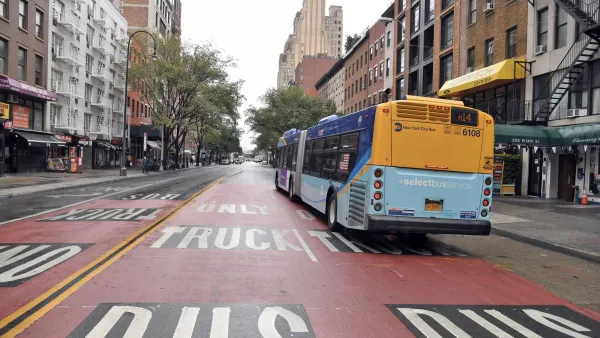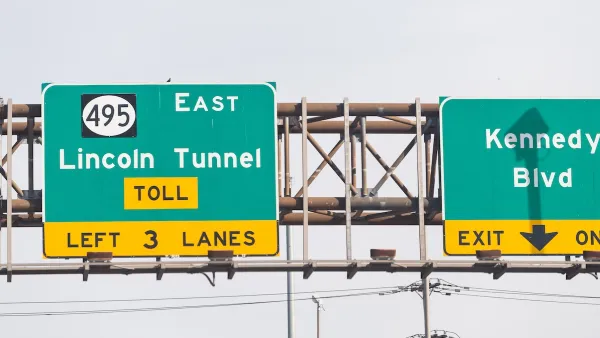The Transport Politic details the City of New York's plans for a citywide busway on 34th Street.
Despite little money in its transportation coffers, the city analyzed a variety of transit options for the 34th Street corridor. This piece looks at why the busway was selected.
"It's sometimes worth considering the hoops through which transit agencies must jump in order to bring their visions to fruition.
But the alternatives analysis did allow New York City's DOT to demonstrate why it considers a dedicated transitway for bus service to be the ideal technology candidate for the two-mile 34th street corridor, running river to river. The mode allows the use of existing vehicles and the through-routing of express buses from elsewhere in the city - something not possible had streetcars or light rail been chosen. It would also be relatively cheap to implement, at between $30 and 125 million, versus $250 million and up for light rail or several billion for a full-scale subway line.
The transitway would allow commuters to get across the city 35% faster than possible today, cutting transit times to 20 minutes, just slightly longer than would be feasible with a light rail line."
FULL STORY: New York Plans Transitway on 34th Street, but It's Not BRT, for Better or Worse

Analysis: Cybertruck Fatality Rate Far Exceeds That of Ford Pinto
The Tesla Cybertruck was recalled seven times last year.

National Parks Layoffs Will Cause Communities to Lose Billions
Thousands of essential park workers were laid off this week, just before the busy spring break season.

Retro-silient?: America’s First “Eco-burb,” The Woodlands Turns 50
A master-planned community north of Houston offers lessons on green infrastructure and resilient design, but falls short of its founder’s lofty affordability and walkability goals.

Test News Post 1
This is a summary

Analysis: Cybertruck Fatality Rate Far Exceeds That of Ford Pinto
The Tesla Cybertruck was recalled seven times last year.

Test News Headline 46
Test for the image on the front page.
Urban Design for Planners 1: Software Tools
This six-course series explores essential urban design concepts using open source software and equips planners with the tools they need to participate fully in the urban design process.
Planning for Universal Design
Learn the tools for implementing Universal Design in planning regulations.
EMC Planning Group, Inc.
Planetizen
Planetizen
Mpact (formerly Rail~Volution)
Great Falls Development Authority, Inc.
HUDs Office of Policy Development and Research
NYU Wagner Graduate School of Public Service



























